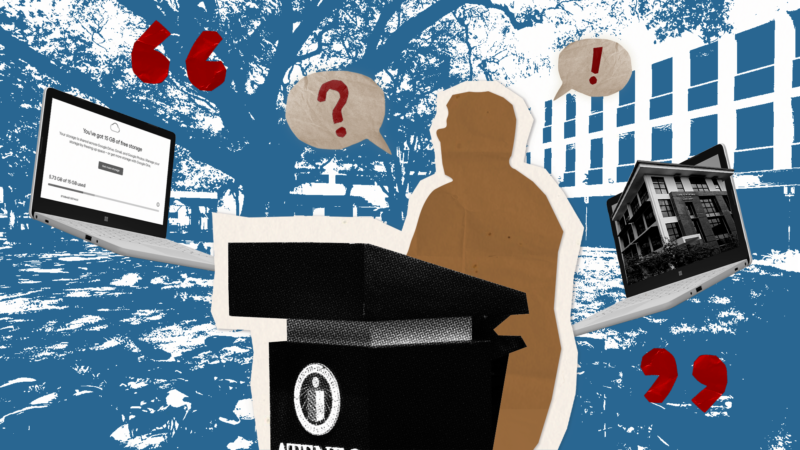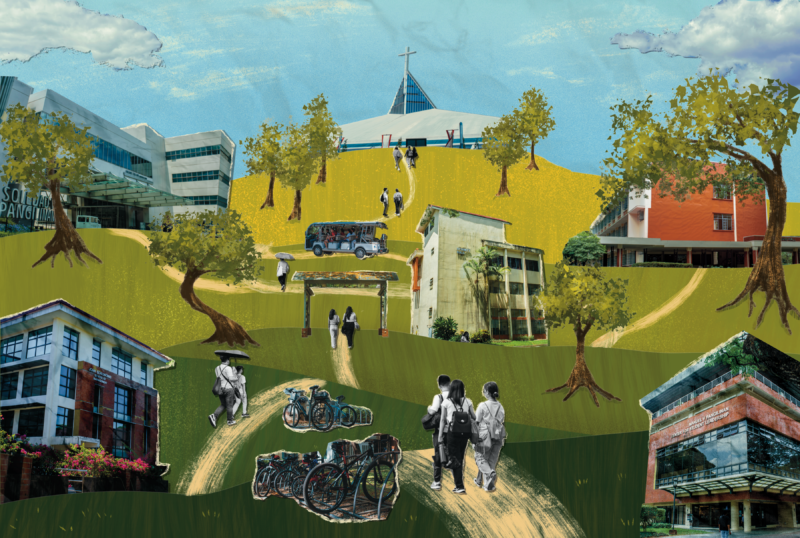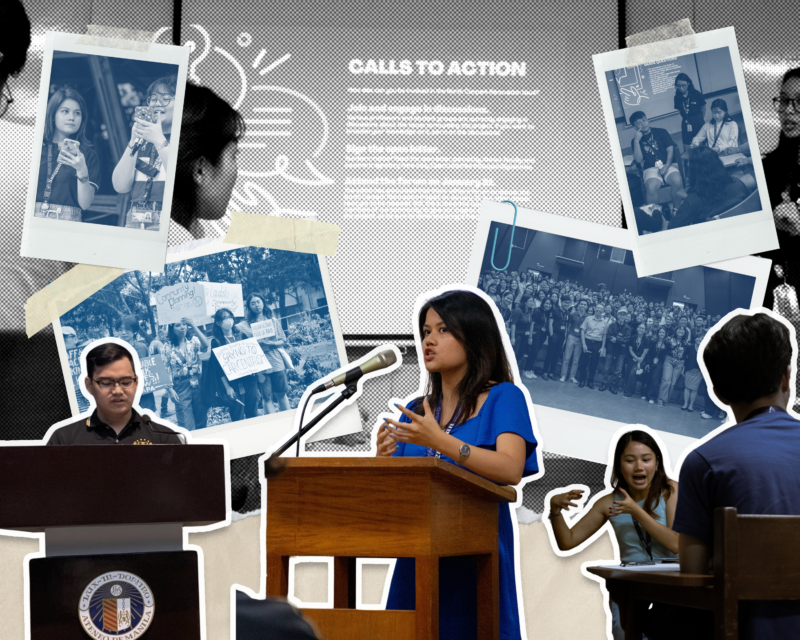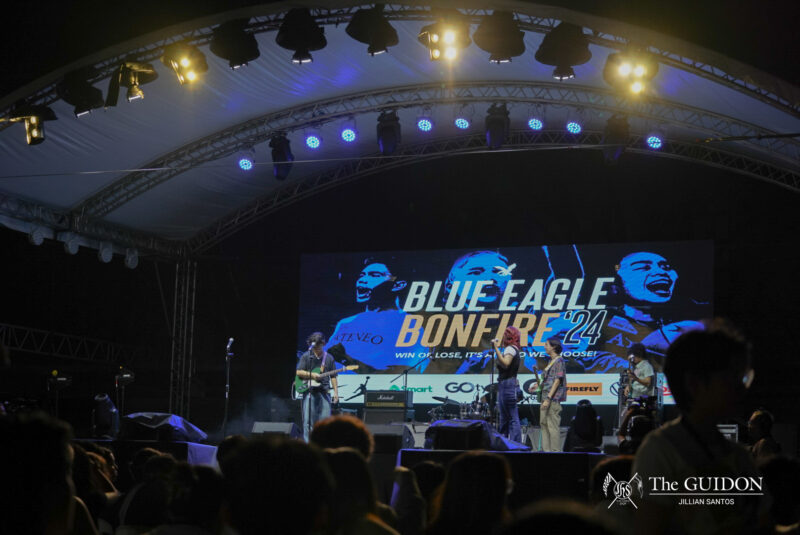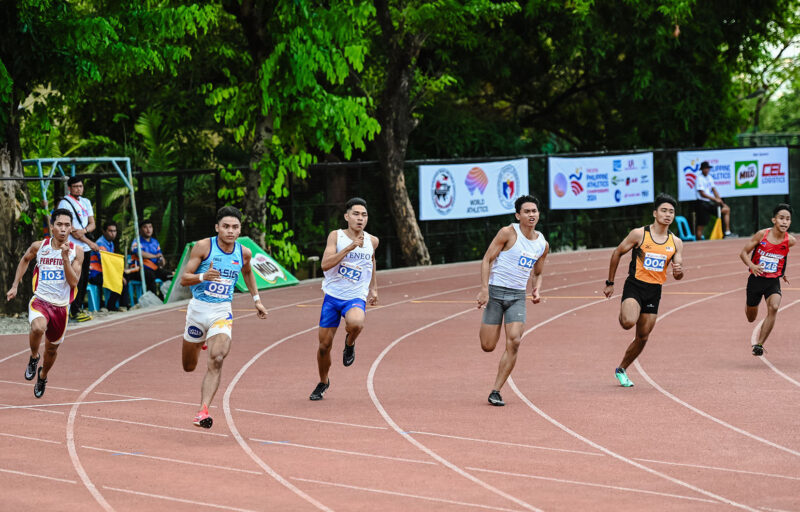SCHOOL OF Humanities Representative Ferdy Acosta said that he plans to form a Committee on Gender in the Sanggunian Central Assembly (CA) that will lobby for the administration’s support for the Ateneo Women’s Desk.
“The Sanggunian is limited. We don’t claim that we completely know what to do if we receive a case. Of course, we want to take care of our students and we can’t do that alone. We need to have institutional support from administration,” he said.
Information Design senior Clara Cayosa set up the desk for her undergraduate thesis. According to Cayosa, the Ateneo Women’s Desk is “a student-run initiative on addressing and preventing sexual harassment and Violence Against Women (VAW) cases in Ateneo.”
Cayosa explained that Section 9D, Chapter IV of Republic Act 9710 or the Magna Carta of Women requires all local governments to establish a VAW desk in every barangay. Since there is no existing desk in Ateneo, she chose this issue for her study.
Partnering with Sanggu
“My initial problem statement for my thesis was that women don’t speak up about their experiences of violence. I wanted to create a platform for them to speak up or to encourage them to speak up about it,” Cayosa said.
“I teamed up with the Sanggunian so that I could get enough respondents and so that I can also get the word out,” she added.
With the aid of the Sanggunian, the desk had its testing phase from March 27 to 31.
In retrospect, Cayosa said that she proposed the creation of a VAW desk in Ateneo to the Sanggunian after Acosta, School of Science and Engineering Representative Neicy Pilarca, and former School of Social Sciences Representative Christian Dy released a joint memorandum on the processing of sexual harassment cases on January 29.
The joint memorandum expressed indignation against the apparent inaction of the University of Santo Tomas administration in resolving a sexual harassment case involving its students. The memo also invited Ateneans to forward “concerns, comments, and proposals” on the issue.
On February 8, the Sanggunian CA passed “A Resolution Declaring the Student Government’s Policy on the Processing of Sexual Harassment Cases Referred to the Sanggunian.” Similarly, Acosta said that the Sanggunian CA recently passed a resolution that he and Cayosa co-wrote, mandating the Sanggunian to establish a VAW desk.
Institutionalizing support
Cayosa’s thesis explored Republic Act 9262 or the Anti-Violence Against Women and Their Children Act. For the methodology, she used resources from the Philippine Commission on Women. Additionally, she consulted with WomanHealth Philippines, a non-governmental organization, and the University of the Philippines Diliman Gender Office (UPDGO).
According to Cayosa, her design solution to VAW in Ateneo involves three phases: establishing a desk and assigning desk officers, creating and disseminating design collaterals on VAW awareness, and connecting the victim-survivors to formal institutions for medical, psychological, or legal assistance.
“The idea is to have a group of girls, of Ateneans, who will either be manning the desk or be on the lookout for [cases] because women don’t really speak up about it openly. It takes a lot of time and effort so instead of them struggling to get to the VAW desk, the VAW desk will go to them,” she said.
However, Cayosa said that in the long run, she hopes that like the UPDGO, the Ateneo administration will provide an office with gender-sensitive personnel that will receive and address sexual harassment and gender discrimination cases.
“I like the idea that students will manage the booth because it’s easier for the victims to speak up as compared to having a counselor. But it is not sustainable because students have other responsibilities and have [no formal training],” she said.
She emphasized that the ideal is for the office to integrate gender sensitivity into Ateneo culture, should it be created.
Admin at present
Office for Social Concern and Involvement Formator Leal Rodriguez, who has a Master’s Degree from the UPD Department of Women and Development Studies (DWDS), attributed the absence of a VAW desk in Ateneo to the Commission on Higher Education’s (CHED) Memorandum Order No. 1 in 2015.
According to Rodriguez, the CHED memo explained the guidelines and policies on gender and development of higher education institutions through the trilogical functions of curriculum, services, and extension programs.
“From what I know, [the administration] is only at the research part. They need to find baseline data in terms of the needs of students and the services we need to provide, therefore, after we get that data, that’s the only time we can move,” she said.
Moreover, Rodriguez said that at present, when a case is filed with the Office of Student Services, a very long process of data gathering follows. The cases are also treated as “mediation between two peers” because the power differential is equal.
“If [the case filed] is student-to-student, they don’t usually see it as harassment. They see it as a [dispute] between students, but the act has a sexual nature and so they have to find a way to resolve it,” she said.
In addition, Rodriguez mentioned that from attending the discussions among the members of the ad hoc Gender Council in the administration, she has observed that the issues raised are focused on the professional advancement of women, the absence of daycares for their children, and the persistence of the wage gap.
The bigger picture
Although UPD DWDS former Chairperson Nathalie Africa-Verceles, PhD, said that the abovementioned issues are important, the “most egregious manifestation” of women subordination is the persistence of VAW.
“I think that is the most basic issue because it has control over your body and your life. The effects of VAW, even if it is sexual harassment and not rape, are really tangible. It can affect a person’s humanity so it is something that should not be taken lightly,” she said.
“What [the students] should do is convince people in the decision-making process that VAW is a serious issue and that it is not just something that they can put off for another time after they have resolved other gender issues,” she added.
As for the students who asked, “What about men?” amid the Sanggunian’s endorsement of the Ateneo Women’s Desk, Verceles has two responses. She pointed out that if the question stemmed from the non-recognition of unequal gender relations and women subordination, then it is problematic. But if the question came from an understanding that men could also be oppressed by rigid gender norms, then “the desk could be helpful by showing them that societal dictates can also be detrimental to their well-being.”
“It doesnt have to be antagonistic. A women’s desk is not supposed to support women against men, it’s supposed to support women in a male-dominated world. And men can help by looking at the need for gender equity, justice, and equality,” she said.


